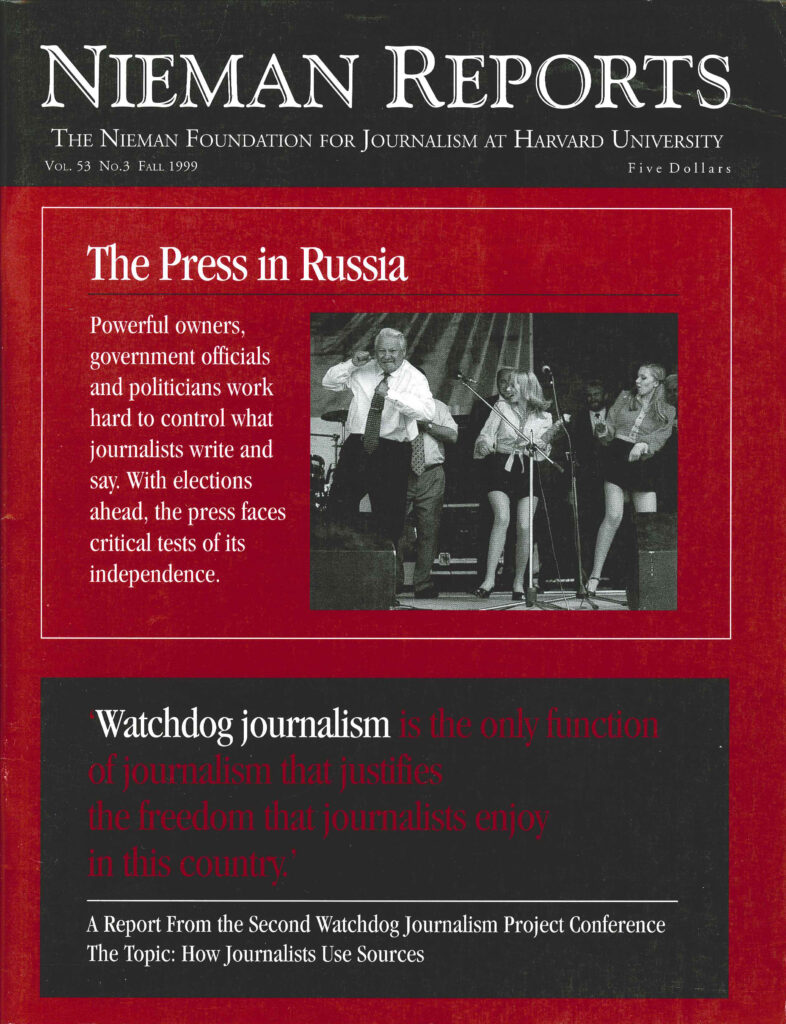ISSUE
Fall 1999

The Press in Russia
Powerful owners, government officials and politicians work hard to control what journalists write and say. With elections ahead, the press faces critical tests of its independence.
How Journalists Use Sources
A report from the Second Watchdog Journalism Project Conference
Journalists meet to talk about the relationships that reporters have with their sources and to examine the potential consequences posed by changes in how sources are treated by reporters and how sources treat reporters.
Articles
Masthead
Publisher
Bill Kovach
Editor
Melissa Ludtke
Assistant Editor
Adam Reilly
Design Editor
Deborah Smiley
Business Manager
Gina Camara
Cover Story
By Alexander Zemlianichenko, used by permission of the Associated Press, won a 1997 Pulitzer Prize.